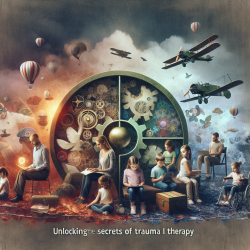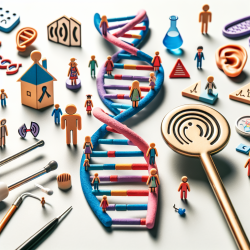Understanding Air-Raid Shock: A Historical Perspective
The study by Stefanie Caroline Linden from Maastricht University illustrates that the psychological trauma caused by air raids on civilians during WWI was comparable to the combat stress experienced by soldiers. Contemporary publications, British government measures, and case records from the National Hospital for the Paralysed and Epileptic at Queen Square in London provide evidence of the profound mental health impacts on individuals.Key Findings and Their Implications
The study reveals three primary emotional responses to air raids:- Fascination and Excitement: People were often spellbound by the sight of airships, despite the danger.
- Anger: Attacks on German citizens and their businesses in London following air raids illustrate this response.
- Terror and Fright: Panic and restlessness were common, with even air-raid warnings causing significant distress.
Implementing Data-Driven Strategies in Therapy
Based on these findings, here are some data-driven strategies to enhance therapy for children experiencing trauma:- Individualized Treatment Plans: Recognize that children may exhibit different emotional responses to trauma, and tailor therapy accordingly.
- Focus on Resilience: Emphasize building resilience, as many civilians demonstrated remarkable strength in the face of air raids.
- Family Involvement: Engage family members in the therapeutic process, as family dynamics significantly influenced children’s reactions during WWI.
- Historical Context: Incorporate historical narratives into therapy to help children understand that their experiences are part of a broader human story of resilience and recovery.
Encouraging Further Research
While the study provides a robust foundation, further research is essential to deepen our understanding of trauma and its effects on mental health. Practitioners are encouraged to explore historical case studies and contemporary research to continually refine their therapeutic approaches.Conclusion
The insights from "When war came home: air-raid shock in World War I" are invaluable for modern therapy. By integrating these findings into our practice, we can enhance our online therapy services at TinyEYE, providing better outcomes for children affected by trauma.To read the original research paper, please follow this link: When war came home: air-raid shock in World War I










